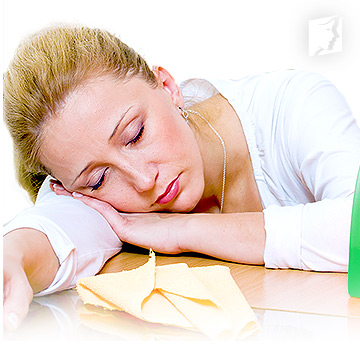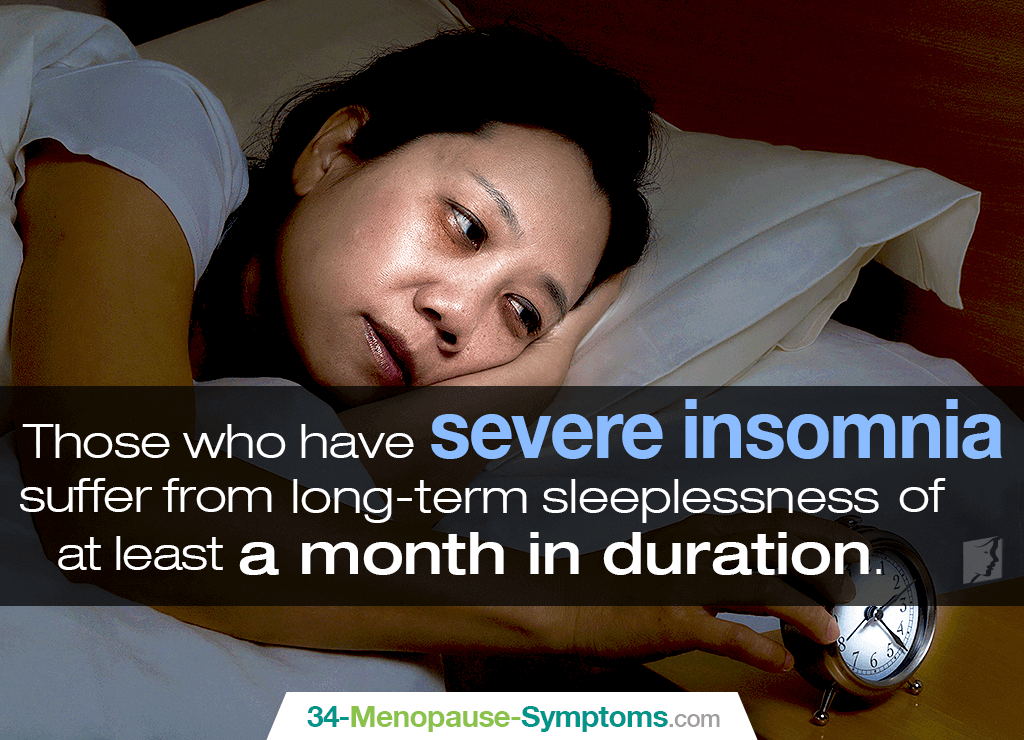Worse than a nightmare can be restless sleep day in and day out for women. Without a doubt, severe insomnia and other sleeping disorders are nothing to joke about, causing a stark decrease in daily productivity and further complications if left treated.
Continue reading to learn more about severe insomnia and other severe sleep disorders as well as what you can do to get your beauty rest back once and for all.
What Makes Insomnia Severe?
In general, insomnia is characterized by the inability to fall asleep or a complete lack of sleep. Those who suffer from insomnia are not able to fall asleep initially, wake up throughout the night and have trouble falling back sleep, have unrestful sleep, or arise too early in the morning.
Accordingly, there are two types of insomnia:
Acute insomnia. Acute insomnia is quite common. This type of insomnia is short-term and can last from one night to a few weeks. Acute insomnia is typically caused by short-term stressors, poor sleep habits, bingeing late at night, or abnormal work or travel schedules.
Chronic insomnia. Those who have chronic insomnia, or severe insomnia, suffer from long-term sleeplessness of at least a month in duration. They have difficulty concentrating from day to day and are at an increased risk of anxiety, autoimmune system problems, depression, and more. Most cases of chronic insomnia are symptom of other health problems.
What Causes Severe Insomnia?
For women going through the menopausal transition, severe insomnia is generally caused by the hormonal shifts taking place in their bodies as reproductive functions come to a halt. This means that the ovaries stop producing the majority of key sex hormones, including estrogen and the sleep-promoting progesterone.
The symptom is also common in pregnant women due to drastic hormonal fluctuations occurring as they nurture the health of another human being.
Other causes of severe insomnia include long-term stress; mental or physical health disorders; medication use; and stimulant abuse, such as of caffeine, nicotine, or alcohol.
Also, it is common for all severe sleeping problems to occur more often with age as changes in health, activity, and sleeping patterns further aggravate the symptom.
What are Other Severe Sleep Disorders?

Other severe sleeping problems causing excessive daytime sleepiness (EDS) - from which you fall asleep on the job or while driving - include sleep apnea, narcolepsy, and periodic limb movement disorder.
Sleep apnea can happen when throat muscles relax and block one's airways, leading to repetitive awakenings. It also happens from a lack of communication between the brain and muscles that control breathing.
Narcolepsy is a central nervous system disorder in which the brain doesn't properly regulate sleep cycles and wakefulness, leading to an uncontrollable need to fall asleep - “sleep attacks” - throughout the day and disturbed sleep at night.
Furthermore, periodic limb movement disorder (PLMD) is a condition causing involuntary jerking and kicking movements of the legs and arms during the night, sometimes hundreds of times. Brief awakenings after the movements can cause EDS.
How Can I Treat Severe Sleeping Problems?
There are several tests for insomnia and sleep disorders enacted to discover the underlying cause. Treatment will then depend upon that. For example, for those diagnosed with weight-related sleep apnea, a weight loss plan will be put into place by your doctor in hopes to ultimately resolve the disorder.
For those going through menopause, treatments for sleep disorders and severe insomnia focus on resolving the fundamental problem, hormonal imbalance. Implementing lifestyle changes that include an optimized diet rich in phytoestrogens and healthy habits - regular sleep schedule, relaxation techniques, etc. - will get you on your way to that much needed rest. Complement these modifications with hormone-regulating supplements, such as Macafem, for improved results.
Key Takeaways
All in all, severe insomnia as well as other severe sleep disorders - like sleep apnea, narcolepsy, and PLMD - can take a toll on women's lives, interfering with their daily schedules and leading to more complex health conditions if not managed accordingly. Causes vary from mental health conditions to extreme stress, but for women transitioning through menopause, hormonal imbalance is generally the culprit of severe insomnia. However, rest assured that with proper action, beauty rest is just one eye close away.
Sources
- Division of Sleep Medicine. (2007). An Overview of Sleep Disorders. Retrieved September 25, 2018, from http://healthysleep.med.harvard.edu/healthy/getting/treatment/an-overview-of-sleep-disorders
- Mayo Clinic. (2016). Insomnia: Symptoms & causes | Sleep apnea: Symptoms & causes. Retrieved September 25, 2018, from https://www.mayoclinic.org/diseases-conditions/insomnia/symptoms-causes/syc-20355167 | https://www.mayoclinic.org/diseases-conditions/sleep-apnea/symptoms-causes/syc-20377631
- National Sleep Foundation. (n.d.). Menopause and Insomnia. Retrieved September 25, 2018, from https://www.sleepfoundation.org/ask-the-expert/menopause-and-insomnia
- Saddichha, S. (2010). Diagnosis and treatment of chronic insomnia. Annals of Indian Academy of Neurology, 13(2), 94-102. doi: 10.4103/0972-2327.64628




